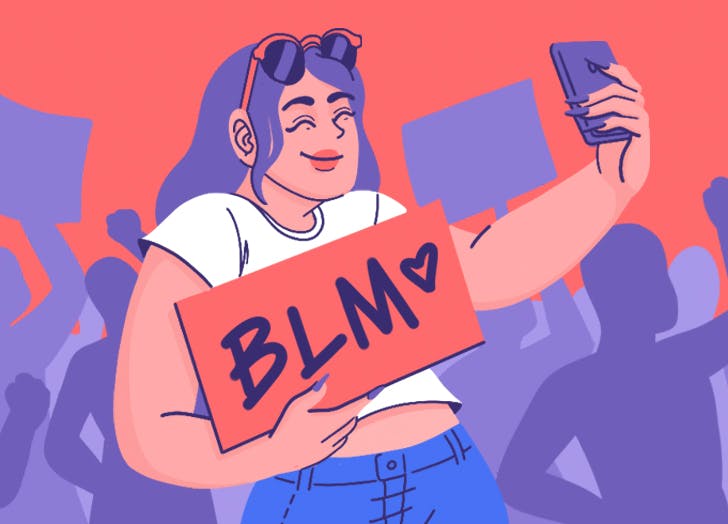Opinion: Watch Out for Performative Activism
If you’ve been on Instagram in the past year or so, you may have noticed an influx in people reposting infographics and colorful posts regarding important issues, seemingly to help spread awareness. But when that girl in your class who called you homophobic slurs in freshman year starts sharing those posts on her Story, you start to question the merit of this social media activism.
Hypocrisy runs rampant on social media these days, especially on Instagram. Young people everywhere are resharing bright, flashy posts in a frantic effort to be seen as “woke” by their peers, deeming themselves advocates for the mental health, POC, and LGBT communities when, in reality, they either perpetuate issues affecting those communities or simply don’t care. This is commonly called performative activism: these “activists” speak out not because they are passionate about the issue, but to gain status or feel good about themselves. You can see it in the way they mindlessly posted black squares for #blackouttuesday in swarths last year, and in the way they repost articles with shocking titles before checking for misinformation (which is often present).
Doing such things isn’t inherently immoral; in fact, some performative activists even have good intentions. Some even argue that all activism is beneficial regardless of intent because it still spreads awareness. While it can spread awareness, it can also spread misinformation. A lot of these infographics and articles are from questionable, little-known sources or random Instagram accounts run by other teenagers who do not cite their sources. This kind of misinformation, at worst, can cause unfounded panic over events that are either heavily exaggerated or not happening at all.
Take Pridefall 2020, for example. In the days prior to last year’s Pride Month, posts about “Pridefall” were spread all over Instagram, warning LGBT users to take their pronouns out of their bios and delete all of their information from their accounts because users of the anonymous imageboard 4chan were carefully coordinating a massive cyber-attack on the entirety of the site’s LGBT community. Plenty of “allies” did not bother to do a quick Google search that would debunk the threat entirely, outing it as a prank, and instead assisted internet trolls in the fearmongering they were going for in the first place. These kinds of missteps are definitive proof that performative activists think little about the consequences of their clicks and shares and more about what those clicks and shares say about themselves to their peers. Performative activism is disingenuous at best and dangerous at worst.
If we truly want to make progress, we need to take steps to replace performative activism with genuine activism. Encourage your peers to do their research before reposting news articles and infographics. Educate yourself on the plights of marginalized groups in a way that goes a bit deeper. Advocate for causes you’re truly passionate about. That way, your activism won’t be in vain.

Nico is a senior currently enrolled in Journalism II. In addition to visual art, writing, and literature, he is passionate about contemporary music and...












